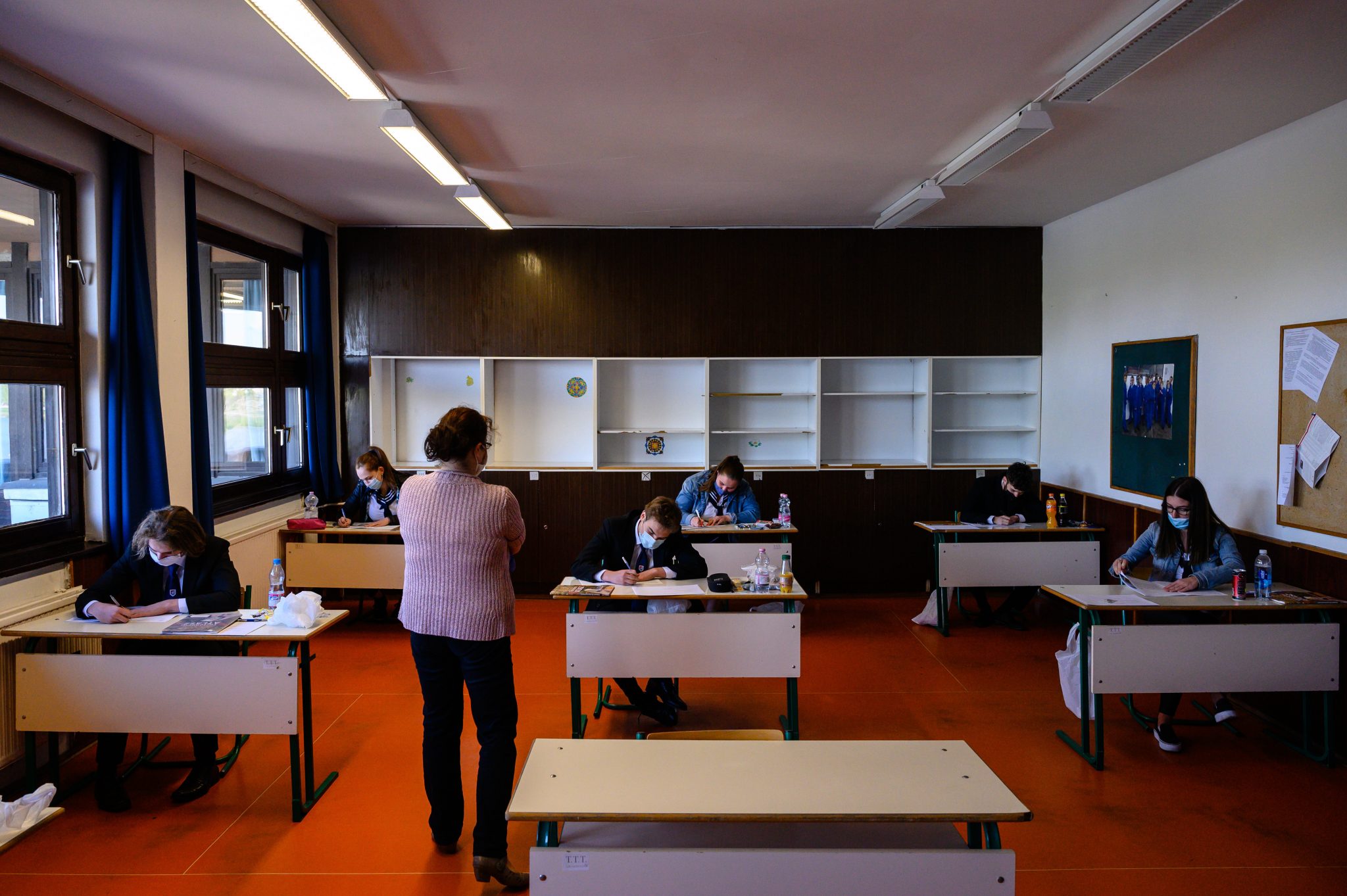
The action will also be aimed at supporting the wage talks of the member unions of the association, the Hungarian Association of Trade Unions said.Continue reading

The number of people starting their profession in education has drastically decreased, figures of the Ministry of Human Resources show. In 2018, six thousand new teachers started their profession, but this number has dropped to two thousand by 2020/2021. Recently, several young teachers wrote a public letter to the Prime Minister to complain about their low salaries, while teachers’ unions are planning a strike for January 31.
This article was originally published on our sister-site, Ungarn Heute.
One teacher who contributed to the letter wrote that after six years of training, she received her diploma as a high school teacher in July 2021, but immediately faced several problems. As a young professional, she only had HUF 160,000 net (about 450 euros) per month at her disposal, almost half of which was used for rent, even though she lived with university students who usually partied at night.
When even the school principal noticed that I shouldn’t come to work as a corpse, I had to move: I found a moldy basement apartment of 17 square meters for 70,000 forints (195 euros) a month.”
The young teacher also calculated that she works 57 hours a week if she includes not only school lessons but also other tasks related to her work. “For 57 hours a week, I receive 160,000 forints (about 450 euros) in a month. This corresponds to a net hourly wage of 701 forints (about 2 euros).”
Another young professional who teaches at one of the capital’s top schools, Eötvös József High School, recently wrote a similar letter pointing out that teachers are unfairly and poorly paid, and that more and more people are leaving the profession.
According to her experience, she currently has a net salary of HUF 178,193 (about 500 euros) in her fourth year of teaching, which is above the level of a trainee according to the so-called “teacher career model.” Her base salary is around HUF 160,000 (450 euros). Her next monthly salary will increase to HUF 207,000 (EUR 581) due to the new allowance increase. So it’s not the salary that goes up, but the allowance. (Which can be withdrawn at any time).
People who work to raise children are employed for unjustifiably little money. And they will leave this profession sooner or later. I have several friends and acquaintances with whom I studied who are planning to do just that, and many of them are no longer working as teachers either.”
Exactly the above-mentioned trend emerges from the data that Bernadett Szél, an independent member of parliament, recently requested from the relevant ministries and institutions. As Szél shares in a Facebook post, the number of new entrants to the teaching profession in the 2012/2013 school year was 4,529, in the 2013/2014 school year it was 5,896, in the 2014/2015 school year it was 5,033, in the 2015/2016 school year it was 5,614, in the 2016/2017 school year it was 5,598, in the 2017/2018 school year it was 6,324, and in the 2018/2019 school year, it was 6,039. (The data from the following year is still missing). In the 2020/2021 school year, the number of newly hired teachers and educators in public educational institutions, regardless of working hours and scope, was 2,095 (including 508 in kindergartens).
This means that the number of people entering the profession has fallen by almost two thirds.
“It is a completely hopeless financial situation to choose children as a profession. Both for beginners and for a colleague who has been in this profession for 30 years,” writes the politician.
The Hungarian Confederation of Trade Unions (MASZSZ) will hold a demonstration on January 31 to express solidarity with the teacher’s strike called for that day. The action is also intended to support collective bargaining by the federation’s member unions. The demonstration will be coordinated with the teacher’s strike.
As we reported earlier, the strike committees of the two major teacher’s unions have been negotiating with the government for months – without much success. After negotiations in December, the two unions announced that they would hold a two-hour warning strike on January 31, and if that failed, would strike again on March 16.
The teachers have summarized their demands in five points, two of which concern salaries: they want the teacher’s salary scale to be based again on the current minimum wage and not on the base pay of 101,500 forints, which has remained unchanged for years. They also demand salary increases for other school staff, such as teaching assistants, and would also like to settle the issue of working hours.
The fifth demand concerns compulsory vaccination. They demand the repeal of the law that requires vaccination of the staff of state schools. Those who refuse the vaccine will be put on unpaid leave.
Sources: Index, Eduline, HVG, Facebook page of Bernadett Szél
Featured image: Students wearing protective masks during the written history exam at the Tóparti Secondary School and Art Secondary School in Székesfehérvár on May 6, 2020. Photo by Tamás Vasvári/MTI